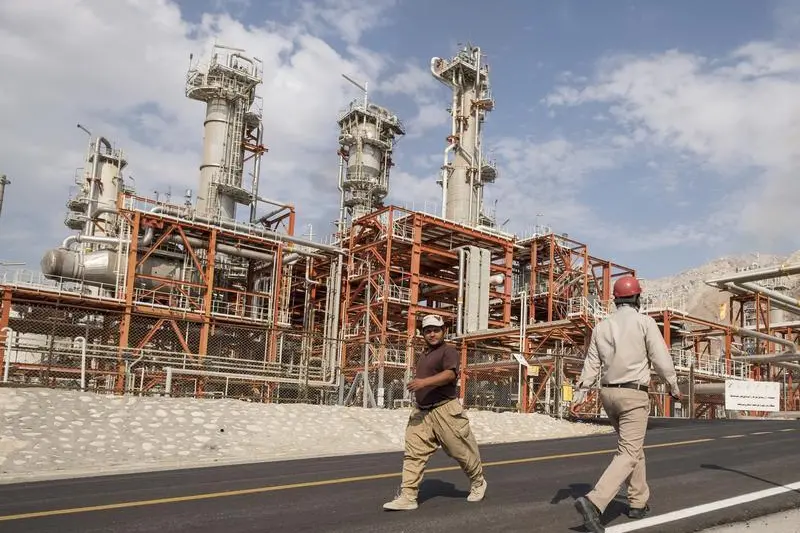PHOTO
Oil supplies from Iran have already declined by 250,000 barrels per day ahead of the sanctions that are due to be imposed on the country by the United States in November, according to new research.
A quarterly oil market update from Saudi Arabia's Jadwa Investment bank issued on Wednesday stated that declines in Iranian oil purchases were witnessed from India and Japan, but "South Korea led the way in cutting purchases to zero, in line with the US’s request.
The report also estimated that once sanctions kick in next month supplies from Iran are likely to weaken further, citing an estimate from the National Iranian Oil Company predicting that exports could fall by a further 500,000 barrels per day.
Concerns about disruption to the supply of oil have pushed prices to a four-year high, with Brent crude hitting $86.12 per barrel at 0619 BST on Thursday.
The Organization of Petroleum Exporting Countries (OPEC) has downgraded its forecast for oil demand by 30,000 barrels per day to 1.6 million barrels per day, mainly due to weaker demand in the Middle East and Latin America. US oil supply has grown by 16 percent during the year to date, the Jadwa report said, citing United States Energy Information Administration data, but it said that growth is likely to slow to 11 percent in the final quarter of the year.
In a note sent to media earlier this week, Mihir Kapadia, CEO and founder of Sun Global Investments, said that despite U.S. President Donald Trump's call for OPEC to raise output, "the oil cartel is focused on keeping prices firm to stabilise its members’ revenues".
A report issued on Thursday by Fitch Solutions also stated that the re-imposition of sanctions is likely to push Iran into recession next year.
The report said that already-low levels of foreign investment are likely to reduce further, as companies with exposure to the United states are likely to exit Iranian projects.
"This includes virtually all Western entities and private multinationals of some size," the report said.
It added that countries such as China and Russia are likely to continue buying oil, and may be able to secure lucrative deals given the lack of competitors.
It also said that "declining foreign exchange inflows and rising money supply growth will fuel depreciation of the rial - which has already suffered severe losses in the 'free market' over the year to date".
Further reading:
- Saudi petchem firms Sipchem and Sahara rise on merger proposal
- GCC equities review: Emerging markets worries weaken Egypt's index
- Saudi Arabia, Russia agreed in September to lift oil output
- World Court to rule on Iran plea to lift U.S. sanctions
Iran clamps down on market in drive to rescue rial from record lows
(Writing by Michael Fahy; Editing by Shane McGinley)
(michael.fahy@refinitiv.com)
Our Standards: The Thomson Reuters Trust Principles
Disclaimer: This article is provided for informational purposes only. The content does not provide tax, legal or investment advice or opinion regarding the suitability, value or profitability of any particular security, portfolio or investment strategy. Read our full disclaimer policy here.
© ZAWYA 2018





















